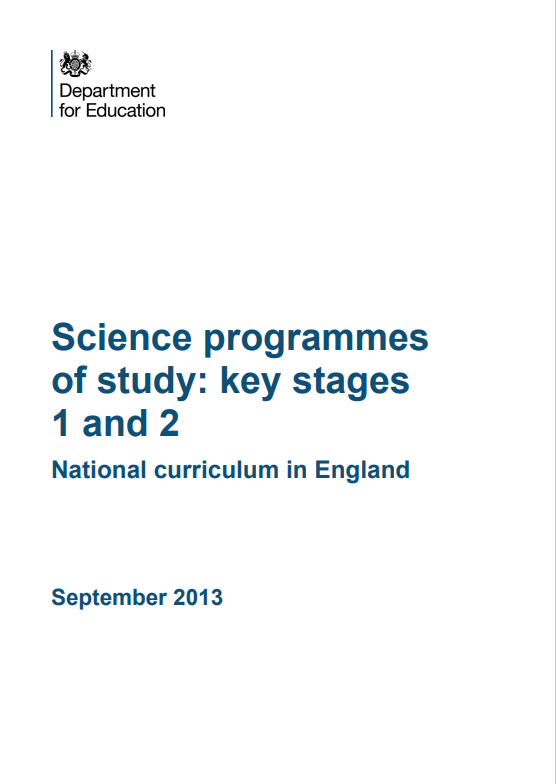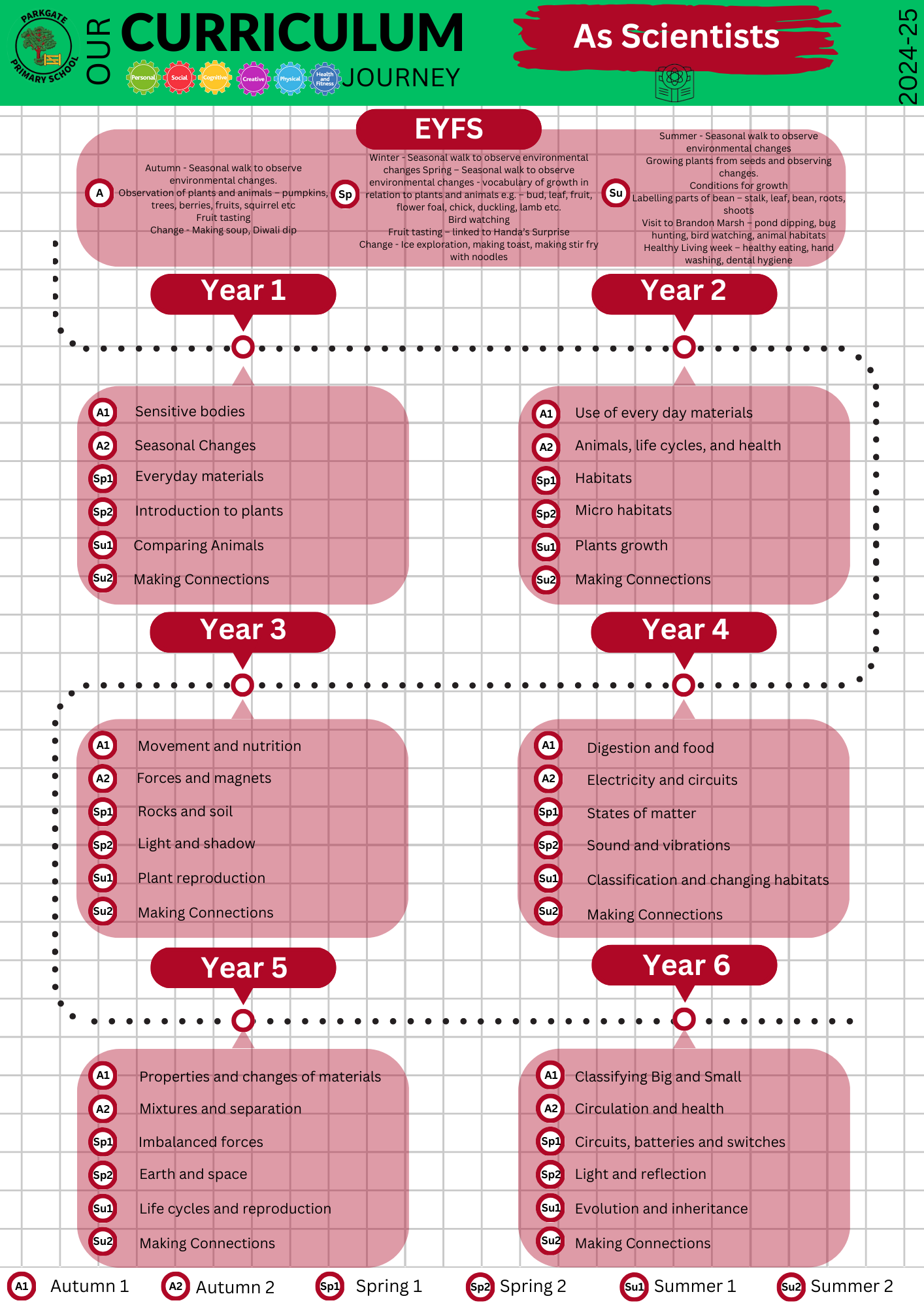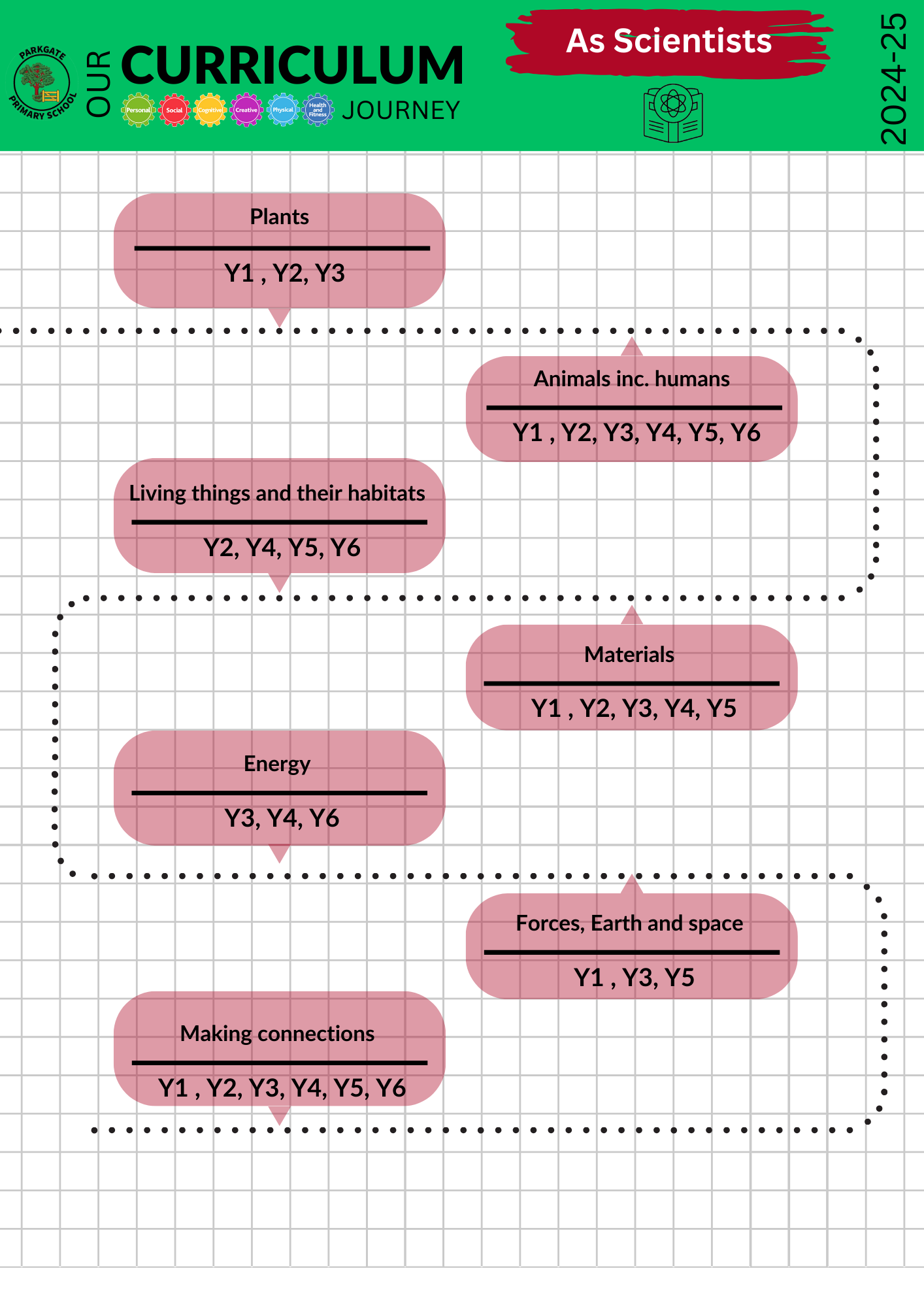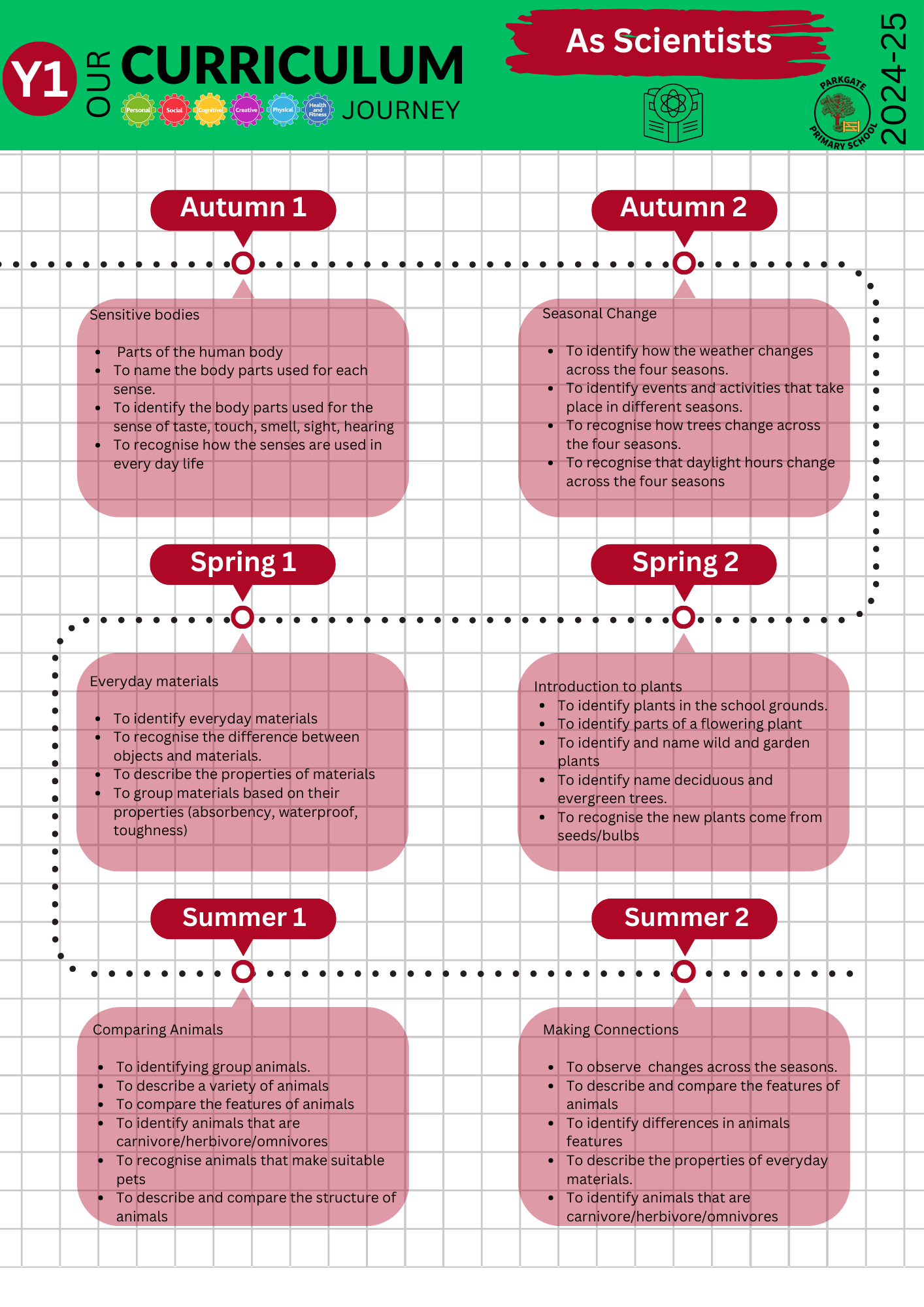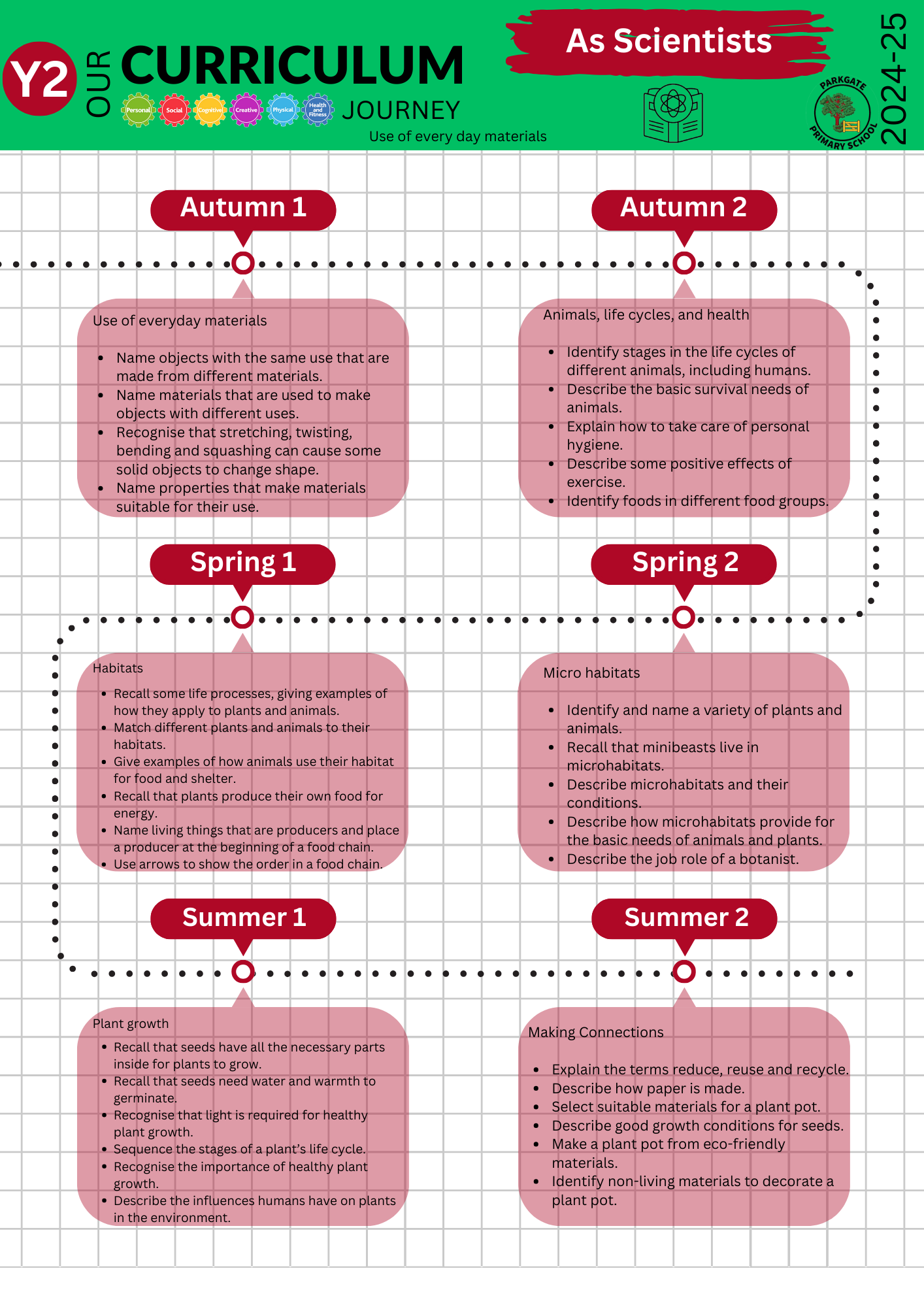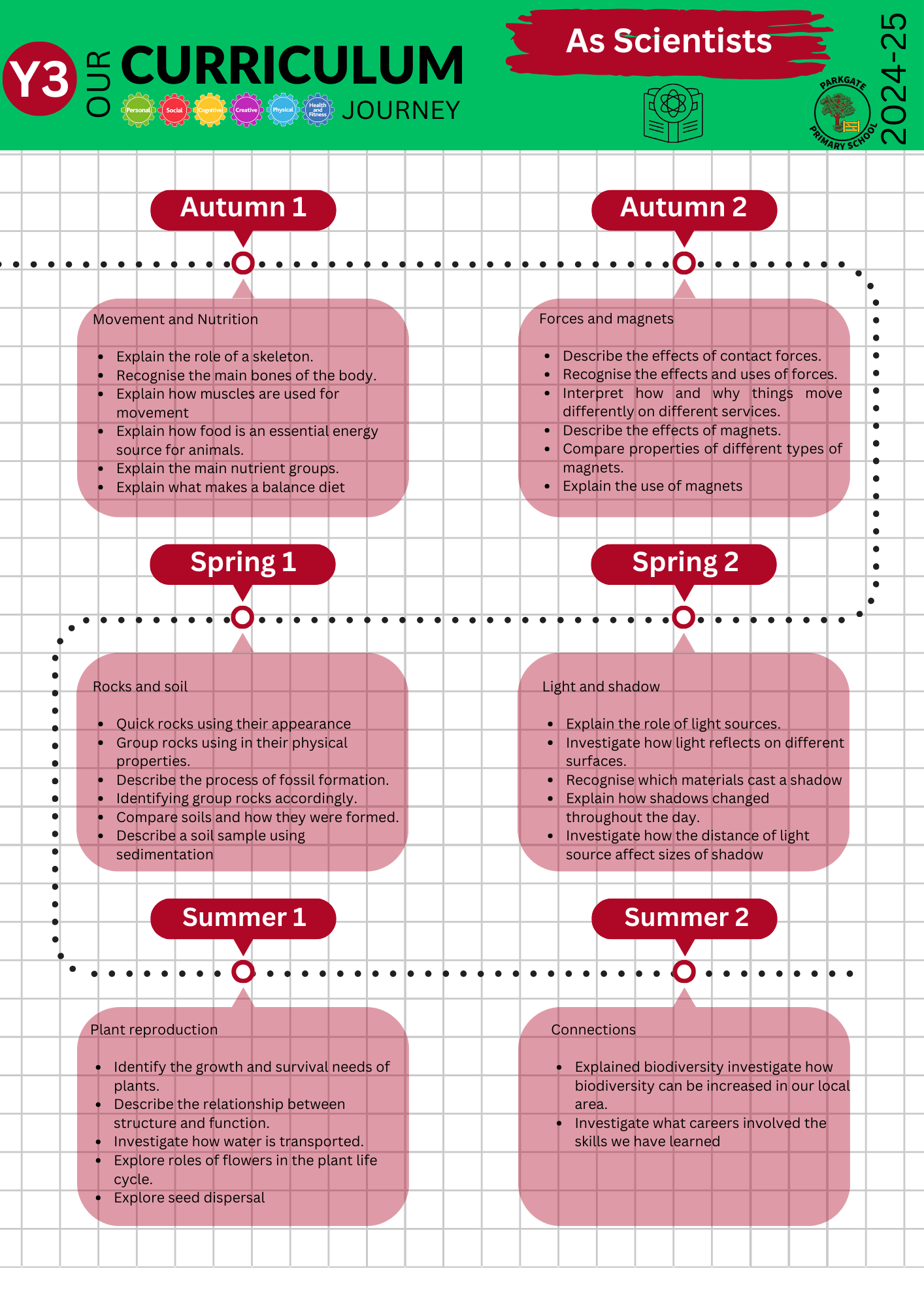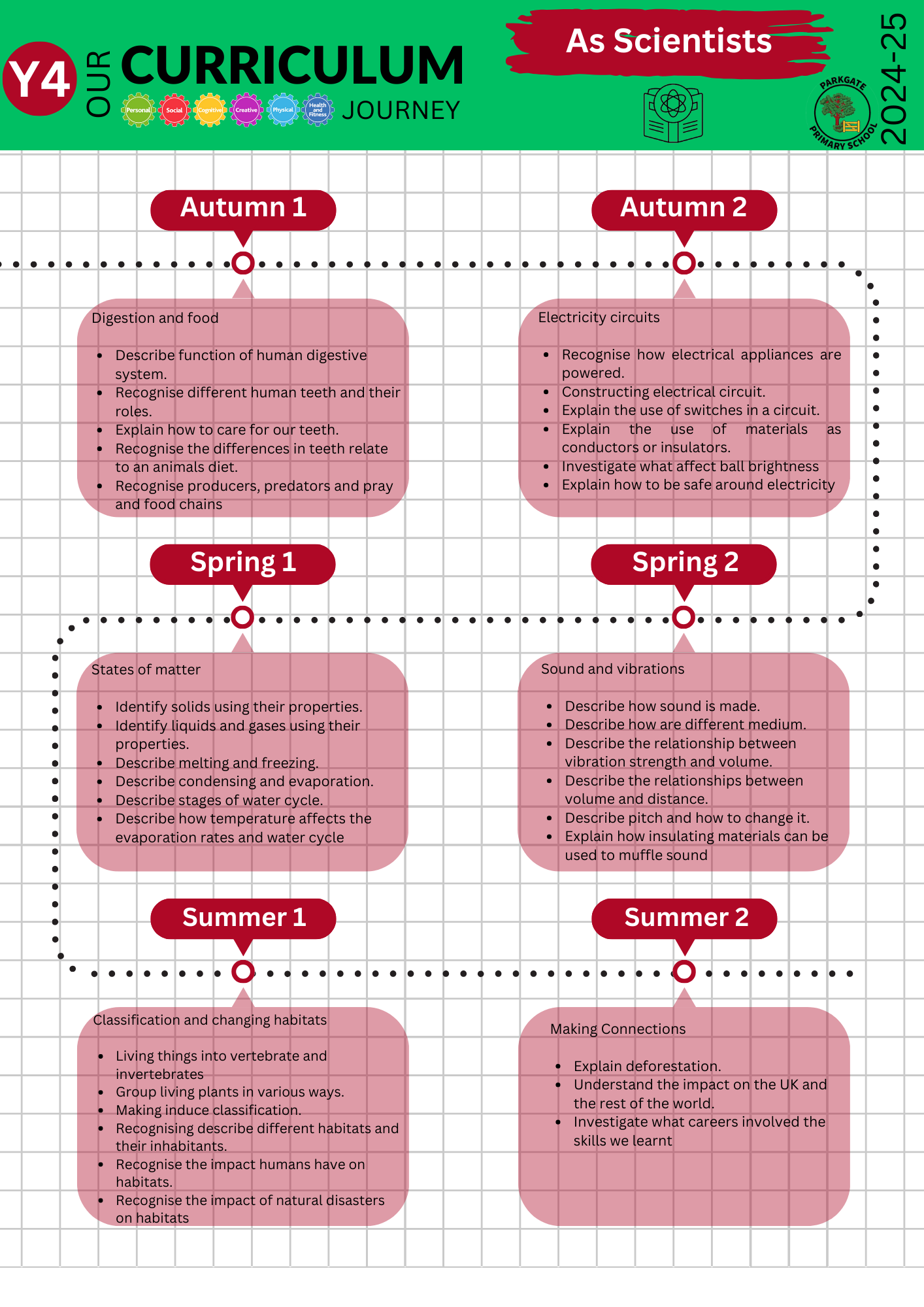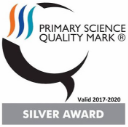As Scientists...

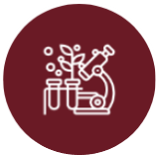 ‘The important thing is to never stop questioning.’ Albert Einstein
‘The important thing is to never stop questioning.’ Albert Einstein
At Parkgate Primary School, we are committed to the delivery of an ambitious science curriculum which will sequentially build children’s conceptual understanding, knowledge and specialist vocabulary through the specific disciplines of biology, chemistry and physics. By consistently building on children’s prior knowledge and experiences, children will know more and remember more, reinforcing and further-developing their understanding of the nature, processes and methods of science and working scientifically. This will enable children to answer scientific questions about the world around them, to recognise the power of rational explanation and make meaningful connections in the wider curriculum, igniting a life-long curiosity about natural phenomena and the world around them. Through our diverse curriculum and with the support of assets within our community, we will ensure that children are equipped to understand how major scientific ideas have contributed to change and the uses and implications of this learning in the ever-changing landscape of the 21st Century world while introducing them to a range of diverse, relevant and inspirational scientists, representing our school community.
The Science curriculum offer follows the national curriculum in KS1 and KS2 and the EYFS Statutory Framework and Development Matters in the early years. The Science curriculum is ambitious and designed to give all learners, particularly the most disadvantaged and those with special educational needs, the knowledge and cultural capital they need to succeed in life. Where required, pedagogy is adapted so that all children, including disadvantaged children, and those with SEND are on the same knowledge journey towards the same endpoints.
Our curriculum is carefully weighted with equal priority given to both substantive knowledge (scientific facts explaining how the world works) and disciplinary knowledge (how scientists work and come to their conclusions). Clearly defined substantive knowledge end points are identified at the end of the unit and disciplinary knowledge end points at the end of each key stage. Components (building blocks) are carefully sequenced so new knowledge builds on what has been previously taught and leads to the end point. Where required pedagogy is adapted so that all children, including disadvantaged children, and those with SEND are on the same knowledge journey towards the same endpoints.
Key concepts, for example, 'animals including humans', 'materials' and 'plants' are covered and repeated throughout the curriculum. Vocabulary is also taught explicitly in every lesson. Keywords and concepts are mapped out and there are also opportunities for developing reading in science.
Across school, plans are written following the end points and key concepts.
Review and retrieval is a key part of every lesson. Quick quizzes and knowledge organisers are used to support this.
Our children represent an urban area of Coventry and this is reflected through an inclusive, diverse curriculum which is supported through additional extracurricular focusses on events such as Science Week and visits from professional scientists.
Parkgate Primary School has been awarded the Primary Science Quality Mark. The Primary Science Quality Mark is a year-long programme that helps schools to achieve a quality mark that focusses on developing effective, confident science leadership for the whole school impact on science teaching and learning. Whilst we are very proud of this award, this is only the beginning of our journey in delivering quality science across school, and we will continue to look at ways in which we can ensure children receive high-quality science provision.

